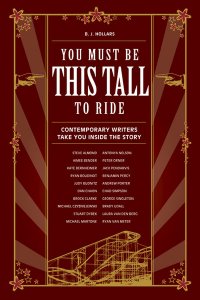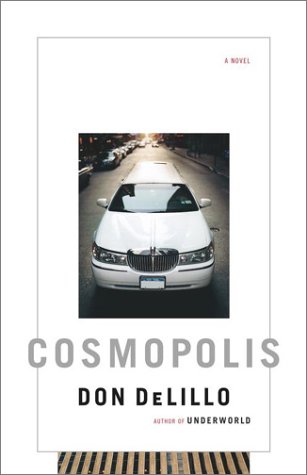storySouth Million Writers Award
storySouth‘s Million Writers Award has announced the top ten stories of the year:
- “The Whale Hunter” by Steinur Bell (Agni)
- “Intertropical Convergence Zone” by Nadia Bulkin (ChiZine)
- “No Bullets in the House” by Geronimo Madrid (Drunken Boat)
- “Fuckbuddy” by Roderic Crooks (Eyeshot)
- “The Fisherman’s Wife” by Jenny Williams (LitNImage)
- “Every Earth is Fit for Burial” by Cyn Kitchen (Menda City Review)
- “Interview With A Moron” by Elizabeth Stuckey-French (Narrative Magazine)
- “The Tale of Junko and Sayuri” by Peter S. Beagle (OSC’s Intergalactic Medicine Show)
- “Grief Mongers” by Sefi Atta (Per Contra Fiction)
- “Nine Sundays in a Row” by Kris Dikeman (Strange Horizons)
Congrats to all. You can vote for them here. The ‘notable stories’ from which the winning list was culled is here.
Word Spaces (11): Lily Hoang
Lily Hoang is the author of Parabola (Chiasmus Press) and Changing (Fairy Tale Review Press) and has an ebook at Lamination Colony titled The Woman Down the Hall. She is an associate editor at Starcherone Books.
Lily Hoang once visited Houston. She was impressed with Houston’s public transportation, which is basically a light rail train that travels up and down a few blocks, but costs lots of money to maintain. She gave a reading at UH-Downtown and then shared a cigarette with Gene Morgan at Poison Girl.
After the jump: Lily’s Word Space.
Anarchism as the Source Decay of Royalism

They were given the choice of becoming kings or the kings’ messengers. As is the way with children, they all wanted to be messengers. That is why there are only messengers, racing through the world and, since there are no kings, calling out to each other the messages that have now become meaningless. They would gladly put an end to their miserable life, but they do not dare to do so because of their oath of loyalty.
–Kafka, Blue Octavo Notebooks (Third Notebook)
May 20th, 2009 / 4:25 pm
What if we give it away?

Shya Scanlon has decided to give away his second novel, Forecast. Go here to read it online or to download it.
It’s been a few years since I originally read Forecast, but I remember enjoying it quite a bit, and have a line about “the easier eases” of something stuck in my head. There are lots of lyrical moments like that in the book: places where a single root word is explored in a couple of ways.
Just searched the document. Here it is.
Like so many people around them who, from Jen and Marshal’s perspective, had let things go so far astray, had simply let things go, they accused themselves of a fundamental acquiescence of spirit, a surrender in the face of life’s Great Challenges, one of which, they’d say, was the challenge to spread about evenly the precious resources that let them live, that allowed for the easier eases of everyday life.
Forecast could be called science fiction. The world has developed a way of turning emotions into power. The television talks to you. There’s a weatherman. A woman named Helen. Someone made a movie out of it, too. Or a movie out of part of it. The trailer used to be online, and the guy who was in Seattle’s late night sketch comedy show Almost Live was in it. (That guy, Pat Cashman, is in Taco Time ads now. Kevin Seal, one of the first MTV VJs was in a Taco Time ad a while back, too.)
Huh. Sorry about that. Apparently, this HTMLGiant update on Shya Scanlon’s book is being brought to you by Taco Time.
“Taco Time—time to eat fresh.”
You Must Be This Tall To Ride Anthology

Folks,
A new anthology, called ‘You Must Be This Tall To Ride’ is a collection of ‘Coming of Age’ stories (fiction and nonfiction alike) and includes some nuclear writers such as Michael Martone, Aimee Bender, Dan Chaon, Kate Bernheimer, Stuart Dybek, etc etc etc. Furthermore for all you teacher folks out there, each story includes a ‘craft essay’ which explains the process of writing these stories which can prove beneficial to your little aspiring Stephanie Meyers.
In other words, this thing rocks; more info (and submission guidelines for book version 2.0) at http://www.youmustbethistalltoride.net/
The Last Time I Buy a Copy of Cosmopolis
 You ever have one of those books you just can’t seem to hold onto? For me, Don DeLillo’s Cosmopolis is one of them. I’ve bought it several times over now–always in hardback, at the severely discounted price of $5, and always from The Strand–most recently yesterday. And I swear this is the last @#&$%-ing time. What happened to my other copies? I feel like one got left behind in a move. Maybe one is at my friend Amanda’s house in Portland, Ore, or else in storage in Nashville, TN where my parents put my shit when they got divorced and sold their house a couple years ago (unless the Nashville and Portland copies are *different* copies, which is also possible). Basically, by this point I’ve sunk enough money into cheap used Cosmopolises that I could have bought one at regular sticker price, which if I had done I probably would have actually taken care of. The funny thing is that it’s not like Cosmopolis is the greatest book ever, or anything. I’m a big DeLillo fan, to be sure, and I think it’s got a lot to be said for it, but it’s certainly not Underworld or The Names. It’s a short novel, and like all his work incredibly beautiful. It’s about a multi-multi-billionaire taking his limo across town to get a haircut. It’s a poem, really, a sort of elegy-in-advance for technologies that are obsolete before they’re even fully emergent (it’s set in the year 2000), and how money makes a man vast until he is no longer a man at all anymore, but something enormous and organic, powerful in ways the self cannot account for or comprehend. Imagine if the ocean tried to know itself, or a nebula did. I’ve always thought of the book as a sort of working-through of Marx’s proposition that “all that which is solid melts into air.” Maybe you’re getting a sense of why–even though it’s a relatively “minor” work–I keep finding myself drawn back to it. I wake up one day thinking, “Man I’d really like to take another look at Cosmopolis” and I reach for it and then it isn’t there. I’d say I’ve been feeling this way for about a month now, but especially since I read Nick Paumgarten’s “The Death of Kings” in The New Yorker a week or two ago. So, here I am, a humbled but determined owner–yet again–of Cosmopolis by Don DeLillo. I swear I’m going to take care of if this time, to hold it close.
You ever have one of those books you just can’t seem to hold onto? For me, Don DeLillo’s Cosmopolis is one of them. I’ve bought it several times over now–always in hardback, at the severely discounted price of $5, and always from The Strand–most recently yesterday. And I swear this is the last @#&$%-ing time. What happened to my other copies? I feel like one got left behind in a move. Maybe one is at my friend Amanda’s house in Portland, Ore, or else in storage in Nashville, TN where my parents put my shit when they got divorced and sold their house a couple years ago (unless the Nashville and Portland copies are *different* copies, which is also possible). Basically, by this point I’ve sunk enough money into cheap used Cosmopolises that I could have bought one at regular sticker price, which if I had done I probably would have actually taken care of. The funny thing is that it’s not like Cosmopolis is the greatest book ever, or anything. I’m a big DeLillo fan, to be sure, and I think it’s got a lot to be said for it, but it’s certainly not Underworld or The Names. It’s a short novel, and like all his work incredibly beautiful. It’s about a multi-multi-billionaire taking his limo across town to get a haircut. It’s a poem, really, a sort of elegy-in-advance for technologies that are obsolete before they’re even fully emergent (it’s set in the year 2000), and how money makes a man vast until he is no longer a man at all anymore, but something enormous and organic, powerful in ways the self cannot account for or comprehend. Imagine if the ocean tried to know itself, or a nebula did. I’ve always thought of the book as a sort of working-through of Marx’s proposition that “all that which is solid melts into air.” Maybe you’re getting a sense of why–even though it’s a relatively “minor” work–I keep finding myself drawn back to it. I wake up one day thinking, “Man I’d really like to take another look at Cosmopolis” and I reach for it and then it isn’t there. I’d say I’ve been feeling this way for about a month now, but especially since I read Nick Paumgarten’s “The Death of Kings” in The New Yorker a week or two ago. So, here I am, a humbled but determined owner–yet again–of Cosmopolis by Don DeLillo. I swear I’m going to take care of if this time, to hold it close.
Gary Indiana, Rudy Wurlitzer and YOU!

On May 28, worlds will collide as Gary Indiana and Rudy Wurlitzer converge on 192 Books in Chelsea, just south of my office. Two Dollar Radio has just put out Indiana’s The Shanghai Gesture, and is about to rerelease Wurlitzer’s Nog—a fevered dream which threatens to split our world in twain, if ever there was one (to paraphrase Scruffy). Now, I have not yet read either of these, but I have read books by these gentlemen (I use the term loosely. HEYOOOO!) before. Wurlitzer’s The Drop Edge of Yonder, which Two Dollar Radio put out last year, was rad. BMX rad, even (fist pound for the 1980s). And Indiana is a baaaddd man (to paraphrase Ali [or is it Mr. T?]). The upshot is, I suppose, that this will be a strange and surprising event the likes of which we haven’t seen since the Tunguska incident (nod to Pynchon).
May 20th, 2009 / 7:59 am
A Public Space Giveaway

a pubic space
I have issues 02 through 06 of A Public Space to give to someone. They are not fitting on my shelf right now and I don’t want to move them in a box to a new place this summer. I would like to give them to someone.
Issues 02-06 include an essay on Chicago by Peter Orner, a photo essay that documents bathroom graffiti at Camp Ali Al Salem in Kuwait, a special focus on Antarctica, and assorted fiction/poetry.
If you wish to be eligible for this free gift, please email your name and mailing address to htmlgiant [at] gmail [dot] com by noon cst this Sunday. The random integer generator will then be unleashed upon the emails and a winner will be chosen and so on.
Down South with the Ghost of Larry Brown (guest posted by Kevin Sampsell)

Is it weird to cry over the death of a writer? When Larry Brown died just before Thanksgiving in 2004 at the age of 53, I remember seeing the news of it on a web site and involuntarily saying “Holy shit” out loud, even though no one else was around. I didn’t cry then but I wanted to, as if my tears would represent a show of respect or offer a thank you to the man who wrote many of my favorite short stories and novels. His writing was a beautiful streamlined machine, full of blunt emotion, a subtle trashy humor, and down-on-their-luck country boys, and hard southern women. With each book, Larry’s style got tighter, more muscular. Later novels like Joe and Fay conjure up names like Flannery O’Connor and adjectives like classic and cinematic. In 1994, I saw Larry read at Powell’s Books from his memoir, On Fire. Although he didn’t like to do the book tour circuit, and often drank too much while on the road (drinking is often the favorite pastime of his characters), he was on his best behavior and was soft-spoken and gentlemanly when I asked him to sign my books. Two years later, he came back to town for his powerful revenge novel, Father and Son. For some reason, I missed that reading, but I heard he was bleary-eyed drunk and read a rape scene before plopping down to sign books for the stunned audience.
The Brandon Book Crisis: A review

The Brandon Book Crisis (Muumuu House, 2009) by Brandon Scott Gorrell and Tao Lin
A paperback “thriller” about book design published May 25, 2009 in a limited edition of 150 numbered copies. 152 pages, 5.5″ x 7″, © Creative Commons, No Rights Reserved. Features 140+ pages of unedited Gmail chats, text messages, voicemails, and emails between Brandon Scott Gorrell, Tao Lin, and others.
The Brandon Book Crisis is, put simply, a book about the making of a book, which is not an entirely new postmodern conceit, if one thinks about the self-referential Pale Fire (Nabokov), Coming Soon! (John Barthes), or Lunar Park (Bret Easton Ellis), to name a few. ‘Edited,’ or rather, compiled by Brandon Scott Gorrell and Tao Lin, it consists of gmail chats (already aestheticized by Muumuu House), emails, and the occasional frantic text concerning the printing of Brandon Scott Gorrell’s During my nervous breakdown I want to have a biographer present — specifically, its fonts, colors, and unworkable files.
